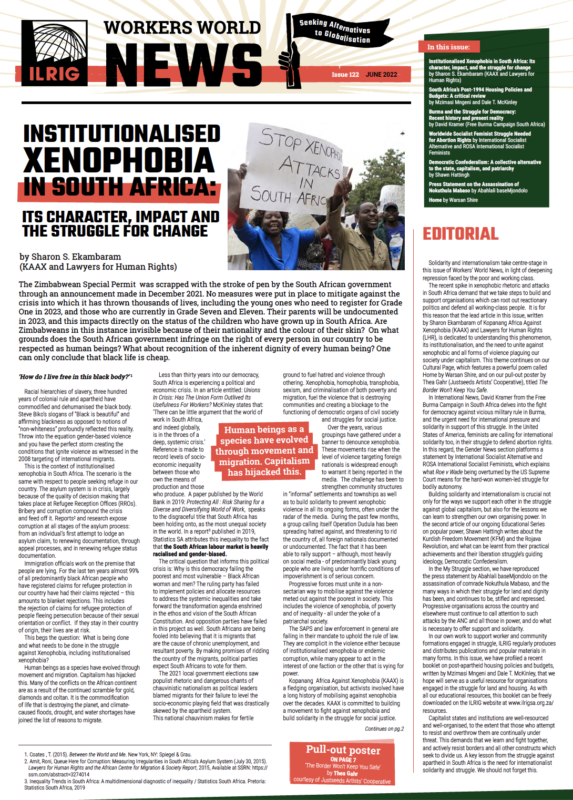The smart Trick of South African Current Events That Nobody is Discussing
The smart Trick of South African Current Events That Nobody is Discussing
Blog Article
9 Easy Facts About South African Current Events Explained
Table of ContentsThe South African Current Events IdeasFacts About South African Current Events UncoveredFacts About South African Current Events RevealedMore About South African Current EventsThe Buzz on South African Current Events
The Limpopo Mirror is published in Louis Trichardt, a community in the north of South Africa's Limpopo province. Image: Anton van Zyl This week the Competitors Compensation is probing just how online information is affected by AI chatbots, search and advertising and marketing technology. The end result of the hearings is very important for the future of information reporting in South Africa.
Registrations and sales of individual duplicates were usually suggested to cover this, but the real cash was advertising - and for some publications, like the Cape Argus in Cape Community, the classifieds. South African current events. The marketers sponsored the news, whether in a national day-to-day, or a small weekly paper dispersed in a country town
In the areas this revenue spent for the reporter to go to the regular monthly council conference, cover school occasions and see the court to learn who may have finished up on the incorrect side of the law. Take for example the Limpopo Mirror, a weekly newspaper published in Louis Trichardt which one of us, Anton, has.
We 'd typically sell simply over 8,000 copies. The cost of printing was roughly 15% to 20% of our turnover. That has gone up to 30% and 35%. The advertisement loading (the portion of space dedicated to advertising and marketing in contrast to information) was between 50% and 60%. South African current events. This has dropped to below 30% and some weeks we don't even obtain to 20%.
The Ultimate Guide To South African Current Events
The decline in advertising and marketing results in less web pages in the newspaper, and less room for newspaper article. As the internet ended up being significantly popular, newspapers started releasing their stories on the internet, generally totally free. Limpopo Mirror was just one of the first newspapers in the country to release a website with regular information updates.
In the starting a lot of us were driven by experimentation and the rush to be very early adopters so we really did not shed out to the competition. There was no feasible service version. Adverts were rare and it took a while before this ended up being the primary means individuals review their news.
Not known Details About South African Current Events
It was hassle-free, immediate and use this link usually free, specifically as the cost of information went down. At the exact same time, purchases of printed papers started to decrease. A few examples: In 2006 the Sunday Times was the largest weekend break newspaper in South Africa, with an audited flow of just over half a million duplicates.
Last year it dropped to listed below 13,000 marketed duplicates and altered its distribution approach. This has been the trend for the majority of long-running newspapers on the earth.
The freesheet model does not function well in casual settlements or country locations. Bulk drops of newspapers have to be dropped off at purchasing centres, for instance, and wastage of these is high.
To produce a newspaper has explanation ended up being incredibly costly, which indicates advertising tolls have actually had to boost. To go was the classified areas of papers.
The Basic Principles Of South African Current Events
A number of big gamers, such as Property24 and Privateproperty, began to dominate the home advertising and marketing market. The used motoring field located one more haven with websites such as Autotrader, Cars24 and other start-ups. While this was all taking place, newspapers such as the Limpopo Mirror attempted to keep up. Print flow dropped to around the 4,000 mark, the readers did not relocate away.
The difficulty was to turn that audience into a profits model that would pay for top quality journalism.
Social media maintains reporters on their toes. There is no information to verify this, it appears to us that mistakes are identified much more promptly, and unethical practices attacked on with higher vigour nowadays.
Some Of South African Current Events
These would certainly have been much harder to run in the age of print. They are all non-profit organisations, primarily moneyed by big institutional contributors. They do not depend on selling their item to endure and the limitation to how many such organisations can exist has actually perhaps been reached. Why is advertising not functioning for news publications? Advertising and marketing profits has been damaged mainly by Google Ads and social media sites adverts.
BNN is a news publisher. Right here's how they describe themselves: "Our dedication is to deliver honest, fact-based, and objective global coverage that can be relied on. We aim to help people deal with the concerns that matter most in their lives. We are the pioneers, the guardians, and the truth-seekers." Their information tales consistently place highly on Google News searches.

Days after Anton's story was published we both browsed "Vhembe" (the region where Anton reports from) on Google Information. Commonly BNN information tales, plagiarised and apparently revised by ChatGPT or some various other AI chatbot, show up greater in Google search than their real equivalents.
2 various Google items drive this rip-off: Google Look drives viewers to BNN; Google Advertisements gives the incentive for BNN's parasitical business model. Thus far in 2024, 72% of GroundUp's traffic has come to our website using search engines. Google is in charge of 99% of that. This is either straight see here utilizing Google Browse or through Google Discover that is mounted on all Android phones.
Report this page